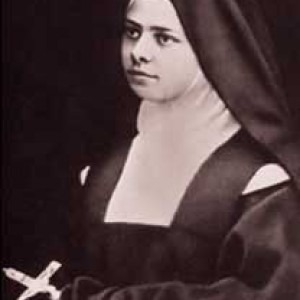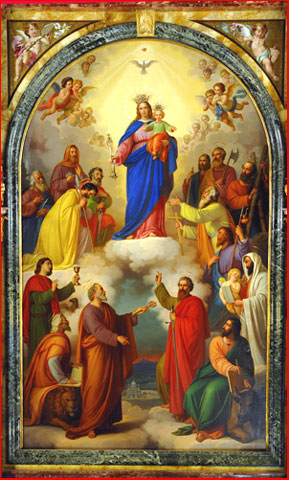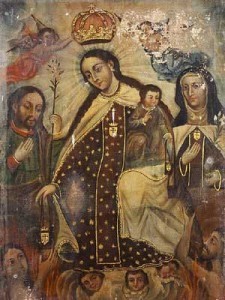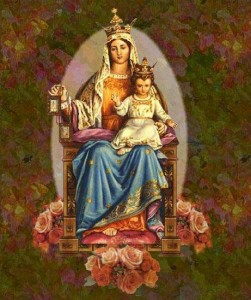
Day 8, Part 1 – The Last Retreat by St. Elizabeth of the Trinity- Beginning to Pray with Dr. Anthony Lilles
Dr. Anthony Lilles reflects with Kris McGregor on the eighth day of St. Elizabeth of the Trinity’s Last Retreat, focusing on her meditation on adoration as a continuous interior act. Drawing from the Book of Revelation and St. Paul’s letter to the Ephesians, she contemplates how the soul can imitate the ceaseless praise of heaven by becoming deeply rooted in love—specifically, in the indwelling presence of Christ through the Holy Spirit. This rooting in divine love transforms every ordinary act into a continuous homage to God. This hidden interior adoration, sustained even in suffering or darkness, aligns the soul with the eternal liturgy of heaven.
He further unpacks St. Elizabeth’s insight that true joy and adoration arise from faith-filled love—one that acknowledges God’s glory even when his ways are obscure. This form of prayer, far from being abstract or removed, draws the individual into an intimate, living relationship with God, echoing the unending worship of the saints. Rather than viewing heaven as distant, St. Elizabeth invites us to participate now in its mystery by surrendering to God’s love in faith, contemplation, and daily fidelity.
Discerning Hearts Reflection Questions
- How can I allow my soul to become a place of unceasing adoration like the heavenly worship described by St. Elizabeth of the Trinity?
- In what ways am I rooted and grounded in love, as St. Paul describes, and how does that shape my daily actions?
- When I do not understand God’s work in my life, do I still choose to keep my eyes fixed on Him?
- How does contemplating the glory and holiness of God transform the way I approach ordinary tasks?
- What role does the Holy Spirit play in helping me dwell more deeply in Christ through faith?
- Do I allow suffering and hiddenness to draw me into deeper trust, or do I resist them out of fear or doubt?
- How can I respond more fully to God’s love in a way that becomes a visible praise of His glory in the world?
- What prevents me from living the joy of heaven now, and how can I surrender that to God?
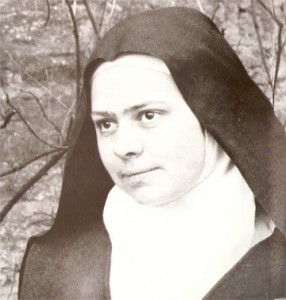
From “Last Retreat Day 8 pt 1” found in The Complete Works vol 1
“20. “And they do not rest day and night, saying, Holy holy , holy is the Lord God Almighty, who was, and who is, and who will be for ages unending. . . . And they fall down and worship Him and they cast down their crowns before the throne, saying, Worthy are you, O Lord, to receive glory and honor and power. . . .” 113 How can I imitate in the heaven of my soul this unceasing occupation of the blessed in the Heaven of glory? How can I sustain this uninterrupted praise and adoration? St. Paul gives me light on this when he writes to his followers his wish that “the Father would strengthen them inwardly with power through His Spirit so that Christ would dwell through faith in their hearts, and so that they would be rooted and grounded in love.” 114 To be rooted and grounded in love: such, it seems to me, is the condition for worthily fulfilling its work as praise of glory. The soul that penetrates and dwells in these “depths of God” of which the royal prophets sings, 115 and thus does everything “in Him, with Him, by Him and for Him” with that limpid gaze which gives it a certain resemblance to the simple Being, this soul, by each of its movements, it aspirations, as well as by each of its acts, however ordinary they may be, “is rooted” more deeply in Him whom it loves. Everything within it pays homage to the thrice-holy God: it is so to speak a perpetual Sanctus, an unceasing praise of glory!”
We would like to thank Miriam Gutierrez for providing “the voice” of St. Elizabeth for this series
For other episodes in the series visit the Discerning Hearts page for Dr. Anthony Lilles
Anthony Lilles, S.T.D., has served the Church and assisted in the formation of clergy and seminarians since 1994. Before coming to St. Patrick’s, he served at seminaries and houses of formation in the Archdiocese of Denver and the Archdiocese of Los Angeles. The son of a California farmer, married with young adult children, holds a B.A. in theology from the Franciscan University of Steubenville with both the ecclesiastical licentiate and doctorate in spiritual theology from the Pontifical University of Saint Thomas Aquinas in Rome (the Angelicum). An expert in the writings of St. Elizabeth of the Trinity and the Carmelite Doctors of the Church, he co-founded the Avila Institute for Spiritual Formation and the High Calling Program for priestly vocations. He also founded the John Paul II Center for Contemplative Culture, which hosts symposiums, retreats, and conferences. In addition to his publications, he blogs at www.beginningtopray.com .

